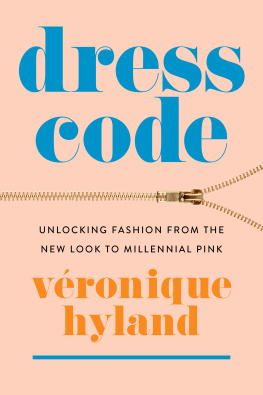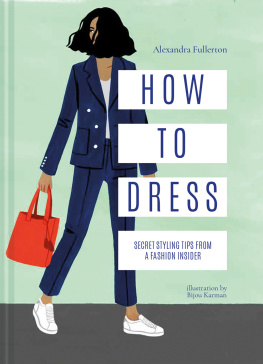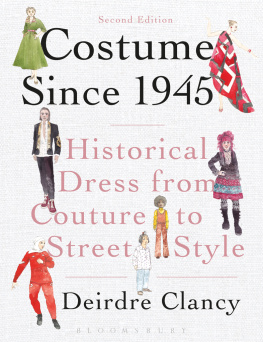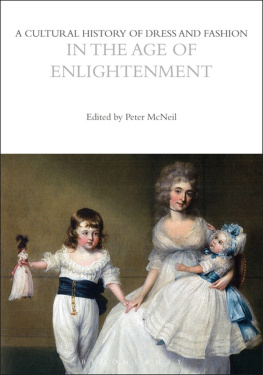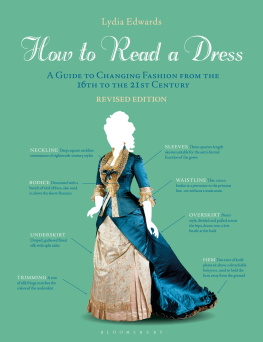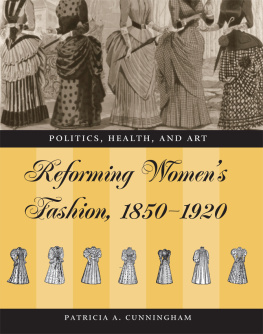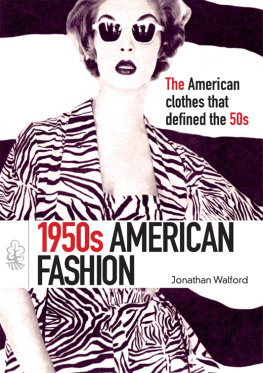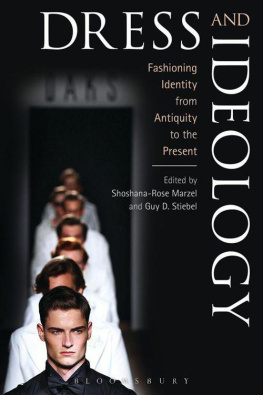W HEN I WAS fourteen, I made a pilgrimageto see a dress. It was by Yohji Yamamoto, a white gown dubbed the Secret Dress, with a hoop skirt and zip-away compartments from which the runway model unfurled a cardigan, hat, and gloves. I just wanted to look at it up close, as a piece of engineering. The salespeople could tell that I wasnt exactly in the market for the dressI looked about eleven years old at the time. They made the quick calculations that I was probably not a wealthy avant-garde child bride, and very politely asked me to take a large step back.
It was my first close encounter with runway fashion that didnt come through either the pages of a magazine or a computer screen. Ive always been fixated on this strange, perverse little world, to the point where I made a career out of it. Im probably, at this point, an incurable case. I never really know what to say when people tell me they dont care about fashion, or that it doesnt affect them: They wear all black. They just wear hoodies, or yoga pants, everywhere. They cant be bothered!
The first assertion may be trueyou certainly dont have to care about fashion, the same way you dont have to care about contemporary fiction, the art world, SoundCloud rap, or making your own sourdough bread. The difference between those realms and fashion, of course, is that with fashion, you have no choice but to opt ineven if youre reading this in a nudist colony, youll probably have to put on clothes at some point to, like, go to the DMV. And yet, fashion is still too often seen as superficial, as trivial, or only taken seriously as an art form when its the most rarefied of couture.
Even if your wardrobe is as dark as Lydia Deetzs soul, even if you exclusively wear athleisure, even if you consciously dont put a lot of thought into what you put on your bodywhich, to be clear, is perfectly fineI am here to tell you that you are making a statement of some kind. Even being anti-fashion is, in itself, a fashion statement. Ultimately, fashion isnt so much a choice as a system that we all live under and are behaving in reaction tolike the weather, the Kardashians, or late capitalism.
Some of the dismissal of fashion comes from a place of sexism, mixed with homophobiastraight men are by far the most likely to tell me that they think fashion is for shallow people. No one thinks its shallow to care about sports, cars, or video games, but fashion is still seen as a frivolous domain, mainly because its long been considered the domain of women and gay men. Thankfully, that attitude is dying out, and more and more straight men are embracing la mode. (Have you seen the lines outside Supreme?)
The other, more defensible critique is that its a shallow and elitist industry that, like the snottiest of high school cliques, excludes people who dont fit in. And that is... not entirely false. The industry as a whole has a long way to go when it comes to fully embracing racial and size diversity, among many other forms of diversity. The clothes shown on runways are often expensive and can seem irrelevant to ones everyday life. Trying to emulate the trends seen there can be intimidatingwhat if Im wearing the wrong thing? What if I make a mistake? Do these culottes look dumb?
At one point in my life, shortly before the Yohji pilgrimage, I shared this view. In high school, I was a) an avowed Marxist, b) heavily involved in the experimental theater world, and c) insufferable (see a and b). But when I wasnt doing things like founding a peoples theater group as an alternative to my schools existing theater club, I started taking trips to the library to pore over fashion magazines and following Fashion Week from afar on sites like Style.com. I was still reconciling my politics with my consumerist urges, and while I might have disapproved of capitalism, and still do, and shopped mainly at thrift stores, it didnt mean that I wasnt interested in capital-F fashion. It just felt very remoteI didnt know anyone who worked in design or media, and no one really seemed to care about the designers I was interested in.
What ultimately made me fall in love with fashion was the creativity, inclusiveness, and progressive viewpoints I have found there. Caring about how you dress and following the runway shows doesnt have to mean, as I once feared, being shallow and elitist. My favorite designerspeople like Rei Kawakubo, Miguel Adrover, and Alexander McQueendidnt come from a place of on-high privilege, but instead set their sights on dismantling our expectations about what beauty and cool could look like. At its best, fashion still has the power to be revolutionary and world-changing, and its a stage that allows us to experiment with who we want to become. Even if youre a total skeptic, you can appreciate that power.
The way fashion works is changing, too, and many of the old signifiers are falling away. Weve been told that millennials favor experiences over things, but things still indubitably matter. Now elitism can look like a hoodie and track pants, depending on the context (like in Silicon Valley, for example). In the essays that follow, Ill examine what status and luxury mean to a generation that sees those concepts in an utterly different way than their precursors did.
Even those of us who purport to not spend much mental energy on it ultimately care about how we dress and how we present ourselves. Style gives us clues about everything from class to which in-group we belong to, and we dismiss it at our peril. I want to take it seriously as a force in everyones lives and examine why it is, ultimately, so crucial to our self-actualization.
Everythingfrom societal changes to the progress (or lack thereof) of womens rights to the hidden motivations behind what we wear to align ourselves with a social groupcan be tracked through clothing. As I say later in these pages, style reveals a societys hidden obsessions, including ones we might not be attuned to. When we buy something, what are we really buying into? How does fashion intersect with late capitalism and technology? And how are values like feminism, empowerment, and individuality being appropriated to sell us things?
These essays will examine the way that fashion overlaps with our daily livesnot the dizzying heights of a runway show, but the clothing we actually wear: what it reveals about how we see ourselves and how others see us. They will also look at how the fashion imagery we see every day shapes our identities.
Over the course of the narrative, Ill examine questions like: Why has the French girl persisted as our most undying archetype? As a woman, what does dressing for yourself really mean? How should a female politician dress? Will gender-differentiated fashion go the way of the dinosaur? How has social media affected and warped our sense of self-presentation when it comes to fashion, and how are we styling ourselves expressly for it?
My premise here is that fashion is a keyit unlocks questions of power, sexuality, and class, tapping into history and sending signals to the world around us. It means something. Even if youre just wearing jeans and a T-shirt.
I N THE SUMMER of 2016, I started to see a predominant shade bubbling up on everything that was marketed to me. Rather than being some dictated-from-on-high runway color of the season, this was something aimed at the masses, backgrounding subway ads and fronting book covers as well as the windows of high-end boutiques.
It was a variation on the pink shade Id always associated with girlhood, not necessarily my girlhood, but the concept at large. But instead of being the saccharine Barbie pink that brings to mind a disembodied squeal of Accessories sold separately! it was a weirdly desaturated hue that seemed stripped of all associations with bubblegum and

